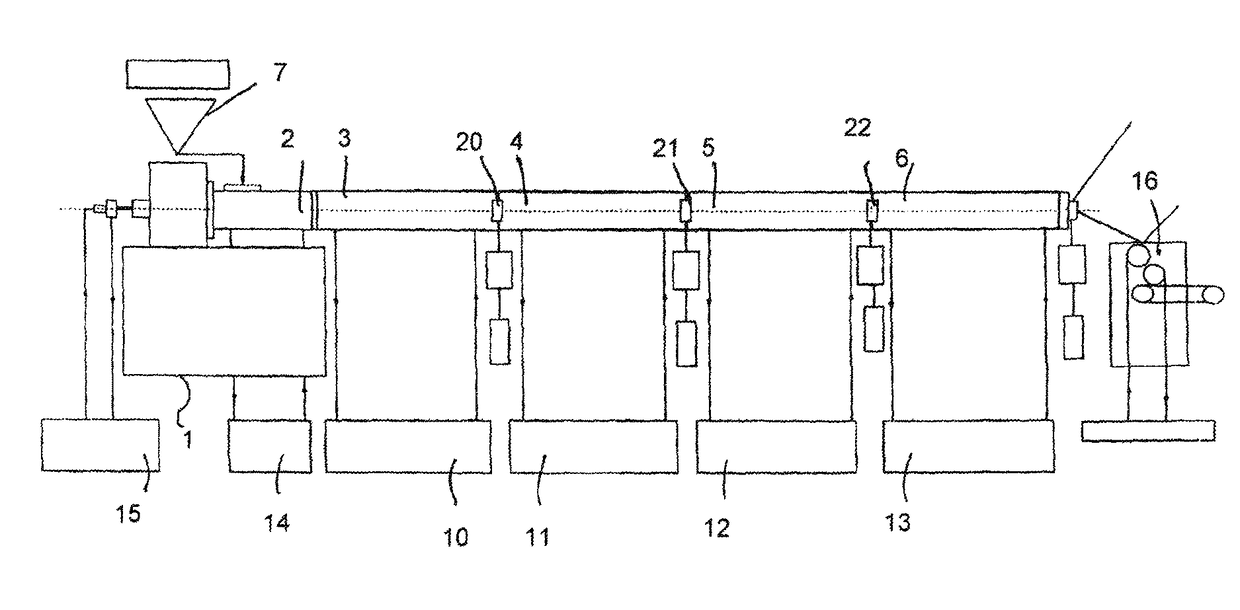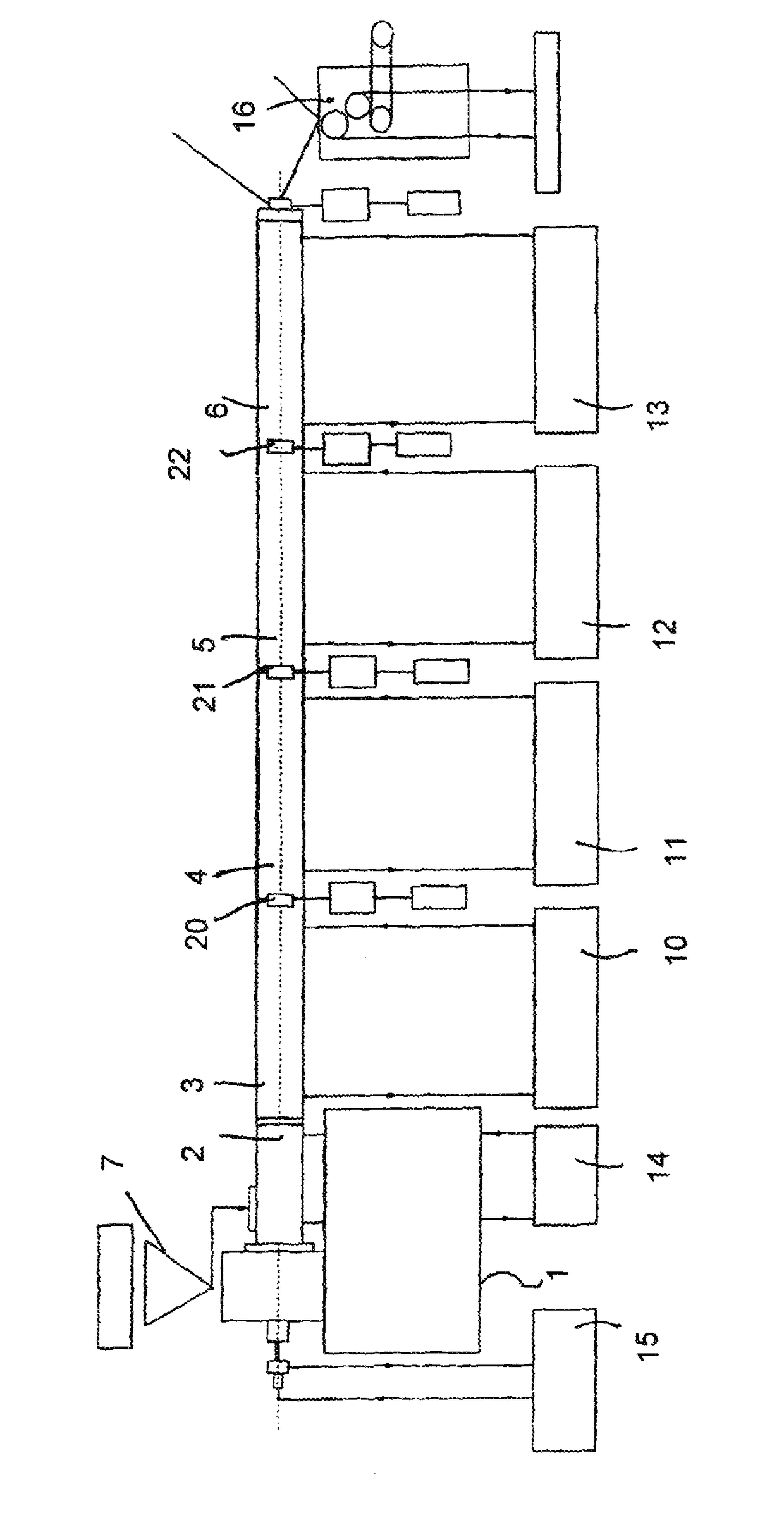Non-chemical, mechanical procedure for the devulcanization of scrap rubber and/or elastomers and apparatus therefor
a mechanical procedure and scrap rubber technology, applied in the field of non-chemical mechanical procedures for the devulcanization of scrap rubber and/or elastomers and apparatus therefor, can solve the problems of high cost, no longer being treated as contemporary, and so on, so as to reduce the number of planetary spindles, the processing time can be still achieved, and the effect of shortening the processing tim
- Summary
- Abstract
- Description
- Claims
- Application Information
AI Technical Summary
Benefits of technology
Problems solved by technology
Method used
Image
Examples
Embodiment Construction
[0077]FIG. 1 shows sections 3,4,5,6 thereof are planetary roller modules. To the different planetary roller modules belong internally toothed cylindrical housings, non-displayed planetary spindles and a non-displayed central spindle, which are located in a cylinder housing that, in one embodiment, can be 400 mm. Here, for all planetary roller modules one common central spindle is provided, i.e. the central spindle passes through all planetary roller modules. In all planetary roller modules six planetary spindles each are provided. Thereby the planetary spindles of the planetary roller modules 3,4,5 are designed as nap spindles, whereas the planetary spindles of the planetary roller module 6 are designed as transport and drying spindles. In one embodiment, the planetary spindles of the planetary roller modules 4,5,6 have all the same length of 399 mm; three planetary spindles of the planetary roller module 3, however, are provided with this length, the other three planetary spindles ...
PUM
| Property | Measurement | Unit |
|---|---|---|
| diameter | aaaaa | aaaaa |
| internal diameter | aaaaa | aaaaa |
| diameter | aaaaa | aaaaa |
Abstract
Description
Claims
Application Information
 Login to View More
Login to View More - R&D
- Intellectual Property
- Life Sciences
- Materials
- Tech Scout
- Unparalleled Data Quality
- Higher Quality Content
- 60% Fewer Hallucinations
Browse by: Latest US Patents, China's latest patents, Technical Efficacy Thesaurus, Application Domain, Technology Topic, Popular Technical Reports.
© 2025 PatSnap. All rights reserved.Legal|Privacy policy|Modern Slavery Act Transparency Statement|Sitemap|About US| Contact US: help@patsnap.com


